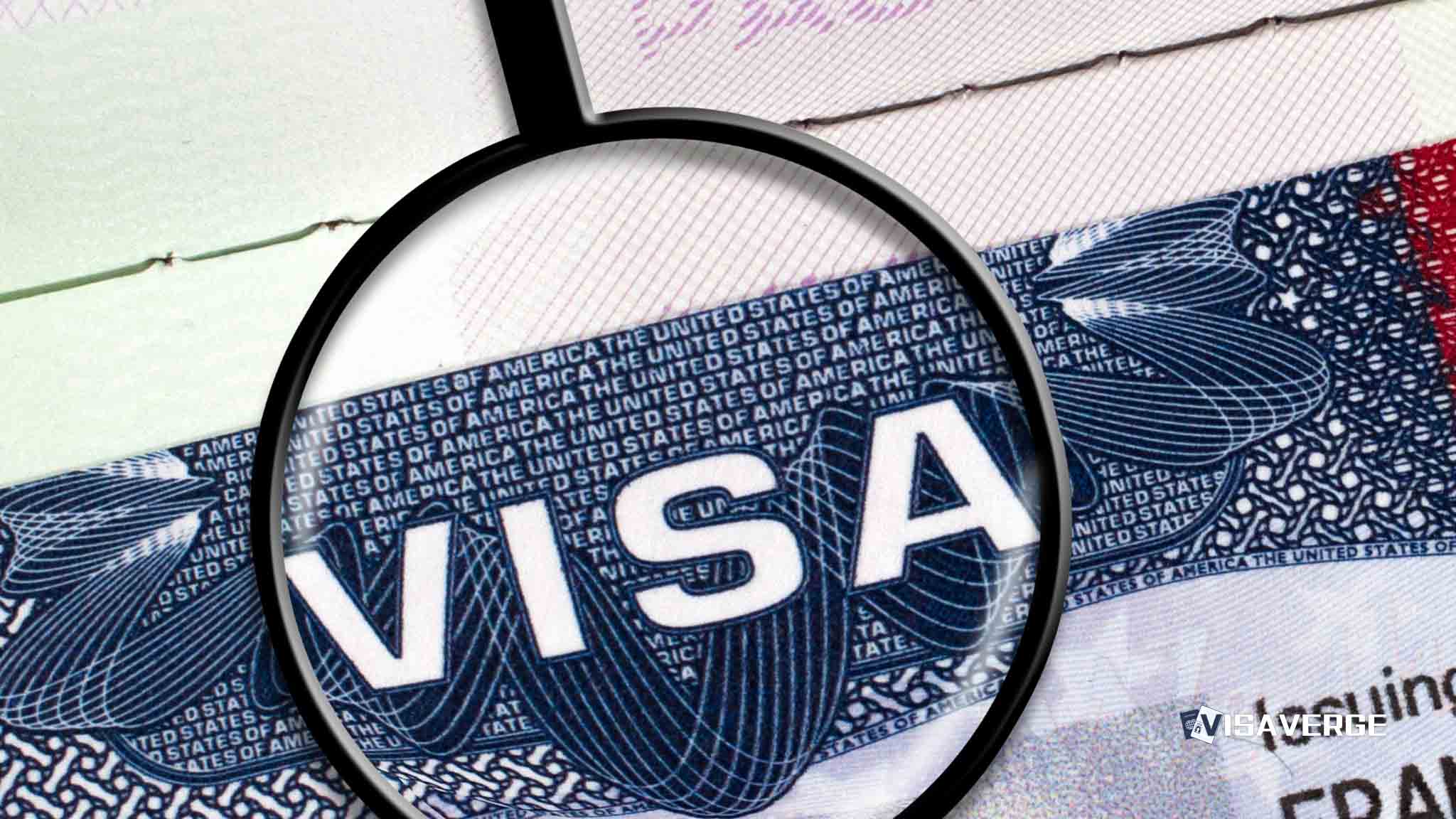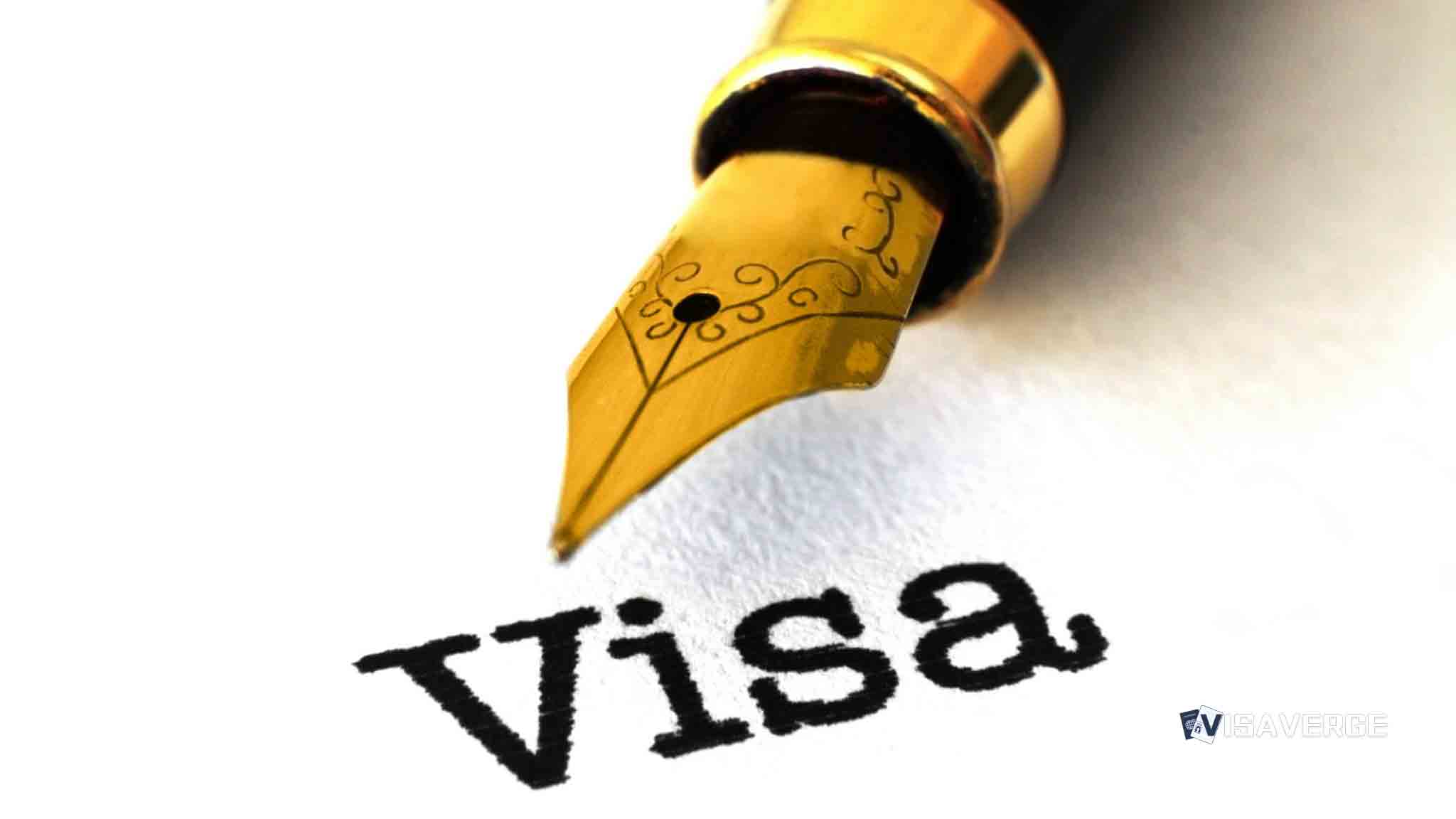Key Takeaways
• In June 2025, USCIS started reopening EB-1A cases over fraud, especially targeting Indian nationals.
• USCIS revokes green cards, issues RFEs and NOIDs, and trains officers to detect fraudulent petitions.
• EB-1A fraud leads to permanent inadmissibility, deportation, criminal charges, and revocation of benefits.
In June 2025, the United States 🇺🇸 government, through the U.S. Citizenship and Immigration Services (USCIS), began a major crackdown on EB-1A fraud. This move has sent shockwaves through the immigrant community, especially among Indian nationals, who make up a large share of EB-1A applicants. The government’s actions include reopening previously approved cases, revoking green cards, and launching deeper investigations into petitions that show signs of fraud or misrepresentation. The consequences are severe, affecting not only those who knowingly committed fraud but also applicants who may have unknowingly relied on dishonest agencies or services.
This article explains what EB-1A fraud is, why the government is taking these steps now, how the crackdown is unfolding, and what it means for Indian nationals and other stakeholders. We’ll also look at the legal background, the step-by-step process when fraud is suspected, and what genuine applicants should do to protect themselves.

What Is EB-1A Fraud and Why Is It a Big Deal?
The EB-1A visa is meant for people with “extraordinary ability” in fields like science, art, education, business, or sports. It’s one of the fastest ways to get a green card, and you don’t need a job offer to apply. Because of these benefits, the EB-1A category has become very popular, especially among Indian nationals who face long waits in other green card categories.
EB-1A fraud happens when someone lies or uses fake evidence to meet the strict requirements for this visa. This can include:
- Publishing in low-quality or fake journals
- Creating fake citations or references
- Claiming awards that are not real or are bought, like the Stevie or Globee Awards
- Paying agencies to create or “package” fake achievements
USCIS has found that some applicants, often with the help of dishonest agencies, have used these tricks to get green cards. This not only breaks the law but also hurts genuine applicants by making the process longer and more difficult for everyone.
The June 2025 Crackdown: What’s Happening Now?
In June 2025, USCIS started a new wave of enforcement against EB-1A fraud. Here’s what’s happening:
- Re-investigation of Approved Cases: USCIS is reopening and reviewing many previously approved EB-1A petitions, especially those filed by Indian nationals. If fraud is found, green cards are being revoked.
- More Requests for Evidence (RFEs) and Notices of Intent to Deny (NOIDs): If USCIS suspects that evidence is fake or cannot be verified, they are sending more RFEs and NOIDs. This means applicants must provide more proof or risk denial.
- Focus on Patterns of Fraud: Officers are being trained to spot common signs of fraud, such as templated recommendation letters or achievements that cannot be checked.
- Public Warnings: Immigration attorneys, like Rahul Reddy, are warning applicants about the risks of using fraudulent services and the seriousness of the government’s actions.
A recent YouTube video from June 19, 2025, highlighted that green card revocations are already happening, showing that this is not just a threat but an ongoing reality.
Legal Background: The Laws Behind the Crackdown
USCIS is using strict laws to fight EB-1A fraud. The main law is INA §212(a)(6)(C)(i), which says that anyone who lies or uses fake documents to get a visa or green card is permanently inadmissible. This means:
- You cannot get a U.S. visa or green card ever again, unless you get a special waiver (which is very rare and hard to get).
- If you already have a green card, it can be taken away if fraud is discovered.
- If you are in the United States 🇺🇸, you can be put into removal (deportation) proceedings.
- In serious cases, you can face criminal charges under 18 U.S.C. § 1546, which can mean fines or even jail time.
There have been no recent policy changes to make things easier. In fact, USCIS has become even more strict, with officers getting special training to catch fraud.
How Does USCIS Detect and Handle EB-1A Fraud?
USCIS uses a step-by-step process when they suspect fraud in an EB-1A petition:
- Review and Detection: Officers look for suspicious patterns, like similar recommendation letters or unverifiable achievements. They may also get tips from the public or other agencies.
- Request for Evidence (RFE) or Notice of Intent to Deny (NOID): If something looks wrong, USCIS asks the applicant for more proof or warns them that their case may be denied.
- Investigation: USCIS may dig deeper, including checking old cases that were already approved.
- Decision: If fraud is confirmed, USCIS denies the petition or revokes the green card.
- Appeal or Waiver: The applicant can try to appeal or, in rare cases, apply for a waiver using Form I-601 (Application for Waiver of Grounds of Inadmissibility).
- Removal Proceedings: If the person is in the United States 🇺🇸, they may be put into deportation proceedings.
- Criminal Charges: In the most serious cases, criminal prosecution can follow.
Key Point: Once fraud is found, the consequences are usually permanent and very hard to fix.
Who Is Affected? Key Stakeholders
Indian Nationals
Indian nationals are at the center of this crackdown because they make up a large number of EB-1A applicants. Many have turned to agencies that promise to “package” their profiles, sometimes using fake or exaggerated achievements. Now, these applicants face the risk of losing their green cards and being banned from the United States 🇺🇸 for life.
Genuine Applicants
People who truly qualify for the EB-1A category are also affected. They face longer wait times, more questions, and a higher chance of getting RFEs or NOIDs, even if their cases are real. This is because USCIS is now extra careful with every application.
Immigration Attorneys
Lawyers are working harder to help clients avoid mistakes and to fight unfair denials. They are also warning people not to use dishonest agencies or fake evidence.
Fraudulent Service Providers
Agencies that offer to “package” EB-1A petitions with fake credentials are under investigation. USCIS is working to identify and shut down these operations.
What Are the Consequences of EB-1A Fraud?
The penalties for EB-1A fraud are severe and can affect every part of a person’s life:
- Permanent Inadmissibility: If you are found to have committed fraud, you are permanently barred from getting any U.S. visa or green card. Getting a waiver is very rare and requires strong legal help.
- Denial and Revocation: Fraudulent petitions are denied, and even green cards that were already approved can be taken away.
- Impact on Other Visas: If you are on another visa (like H-1B, O-1, or F-1) or have a pending green card application (Form I-485), these can also be denied or revoked.
- Deportation: If you are in the United States 🇺🇸, you can be put into removal proceedings and deported.
- Criminal Charges: In some cases, you can be charged with a crime, which can mean fines or jail time.
Important: Even if you did not know that your agency was using fake evidence, you are still responsible for your petition. USCIS expects applicants to check all the information in their applications.
How Does This Affect the Immigration System?
The government’s crackdown is meant to protect the integrity of the EB-1A program. By removing fake cases, USCIS hopes to make the process fairer for genuine applicants. However, this also means:
- More Scrutiny: Every applicant, even those with real achievements, faces more questions and longer processing times.
- Delays: The extra checks slow down the process for everyone.
- Legal Risks: People who used dishonest agencies, even by mistake, risk losing everything they have worked for.
According to analysis by VisaVerge.com, the crackdown is restoring trust in the EB-1A category but is also making the process more stressful and risky for all applicants.
What Should Applicants Do Now?
If you are thinking about applying for an EB-1A visa, or if you already have one, here are some steps to protect yourself:
- Be Honest: Only include real achievements and evidence in your petition. Do not use fake journals, bought awards, or made-up citations.
- Check Your Agency: If you use an agency or consultant, make sure they are reputable. Ask for proof of their work and check their background.
- Review Your Application: Double-check all the information in your petition before submitting it. You are responsible for everything in your application.
- Get Legal Help: If you receive an RFE or NOID, or if you are worried about your case, talk to a qualified immigration attorney right away.
- Report Fraud: If you know about agencies or people committing EB-1A fraud, you can report them through the USCIS official fraud reporting page.
The Waiver Process: Is There Any Hope After a Fraud Finding?
If you are found inadmissible because of fraud, you may be able to apply for a waiver using Form I-601. However, waivers are very rare and hard to get. You must show that your U.S. citizen or permanent resident spouse or parent would suffer extreme hardship if you are not allowed to stay. Most people do not qualify, and the process is long and complicated.
Expert Opinions and Warnings
Immigration law experts say that EB-1A fraud hurts everyone. It makes it harder for real achievers to get green cards and damages the reputation of the program. Attorneys like Rahul Reddy urge applicants to avoid agencies that promise guaranteed results or offer to “package” your profile with fake evidence. They stress the importance of using only real, verifiable achievements and getting proper legal advice.
USCIS’s tough approach is part of a larger effort to keep the immigration system fair and honest. The agency is likely to keep increasing its efforts to find and punish fraud.
Historical Context: Why Is This Happening Now?
The EB-1A category has always attracted some fraud because it offers a fast path to a green card without needing a job offer. Over the years, as wait times for other green cards (like EB-2 and EB-3) have grown longer, more people—especially Indian nationals—have tried to use the EB-1A route. This has led to more fake cases and more scrutiny from USCIS.
In the past decade, the government has made the rules stricter and trained officers to spot fraud. The June 2025 crackdown is the latest and most serious step in this ongoing effort.
What’s Next? The Future of EB-1A Enforcement
Experts believe that the crackdown on EB-1A fraud will continue and may even get tougher. USCIS may use new technology to check evidence and work more closely with other agencies to find fraud. There could also be new rules or guidance to make it even clearer what counts as real achievement.
For applicants, this means that honesty and transparency are more important than ever. Anyone thinking about using fake evidence or dishonest agencies should know that the risks are extremely high and the consequences are usually permanent.
Official Resources and Where to Get Help
- USCIS Website: For the latest news, forms, and instructions on EB-1A and fraud issues, visit the official USCIS EB-1A page.
- Fraud Reporting: If you suspect fraud, you can report it directly to USCIS or contact the Federal Trade Commission (FTC).
- Form I-601 (Waiver Application): If you need to apply for a waiver, get the official form and instructions from the USCIS website.
- Legal Help: Always consult a qualified immigration attorney if you have questions or face problems with your case.
Final Takeaways
The consequences of EB-1A fraud are serious and long-lasting. With the government’s current crackdown, especially on Indian nationals, anyone thinking about using fake evidence or dishonest agencies should think again. The risks include permanent bans, loss of green cards, deportation, and even criminal charges. Genuine applicants must be ready for more questions and longer waits but can protect themselves by being honest and careful.
If you are affected or worried about your EB-1A petition, act quickly: review your case, seek legal advice, and use only official channels for information and help. The future of the EB-1A program depends on keeping it fair and trustworthy for everyone.
Learn Today
EB-1A → A green card visa for individuals with extraordinary abilities in sciences, arts, education, business, or sports.
RFE → Request for Evidence; USCIS asks applicants for more proof when their initial submission is insufficient.
NOID → Notice of Intent to Deny; USCIS warns applicants their petition may be denied due to concerns.
INA §212(a)(6)(C)(i) → U.S. immigration law section penalizing fraud and misrepresentation with permanent inadmissibility.
Form I-601 → Application to request a waiver of inadmissibility grounds, allowing eligibility under special hardship conditions.
This Article in a Nutshell
USCIS’s June 2025 crackdown on EB-1A fraud targets false claims and fake evidence, especially among Indian nationals, imposing strict penalties and longer waits to protect legitimate applicants and maintain immigration integrity.
— By VisaVerge.com












